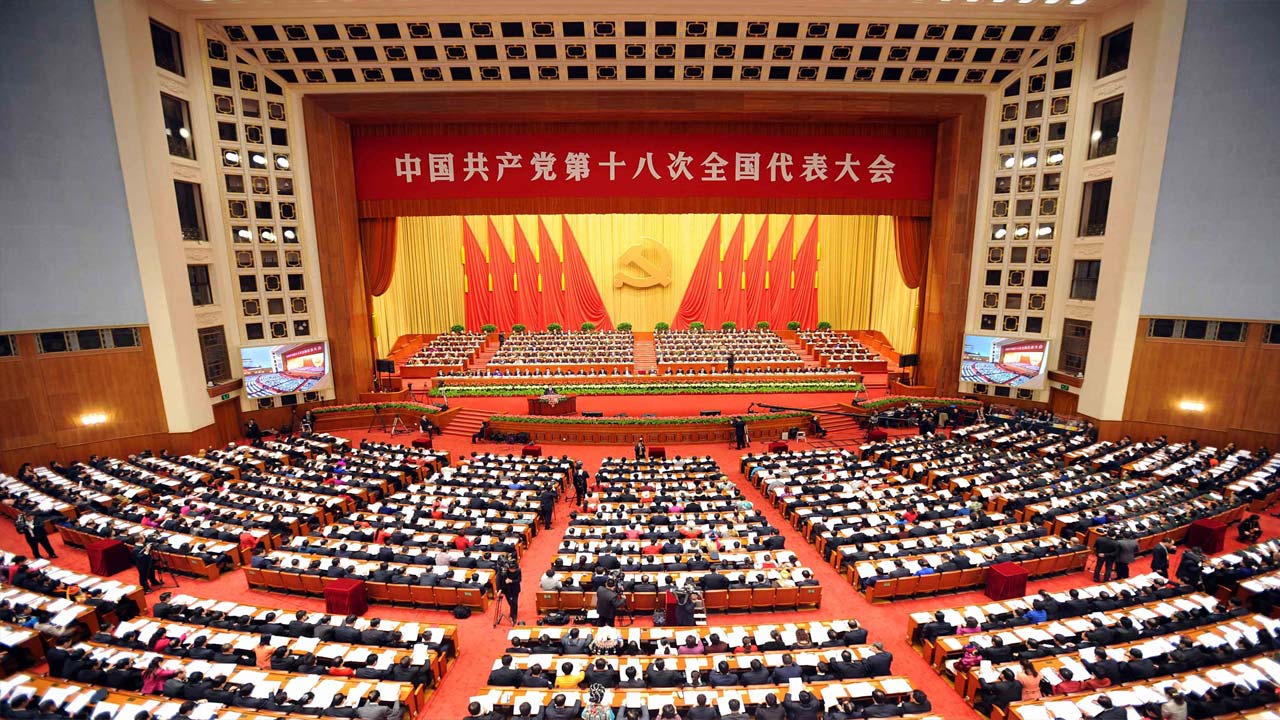
Featured Image: The 20th Congress of the Communist Party of China in Beijing. Photo: File.

Orinoco Tribune – News and opinion pieces about Venezuela and beyond
From Venezuela and made by Venezuelan Chavistas

Featured Image: The 20th Congress of the Communist Party of China in Beijing. Photo: File.
China’s most important political event of the year generates many expectations inside and outside the borders of the Asian power.
As of October 16, the eyes of the world will focus on the 20th Congress of the Communist Party of China (CPC), an event that highly impacts and defines the next steps of China’s political system and may have ramifications for the world economy.
Everything that revolves around the 20th Congress of the CPC keeps the various axes of world power in expectation, because the decisions that are made during this day will define the course for the most populous country on the planet which has, for the moment, the second largest economy in the world.
Venezuela and China’s Foreign Ministers Meet in NYC (United Nations)
This week, the names of the 2,296 delegates who will be attendance to open the Congress were announced. The delegates are expected to secure the re-election of Xi Jinping for a third term as president of the People’s Republic of China.
In China’s political system, widespread representation of the different sectors of the country among the delegates is very important. The most important sectors of Chinese society are represented, which aids in driving the development of the country.
The sector of civil servants and specialized technical personnel stands out, with a representation 11.6% among the delegates. Workers hold 8.4% representation, farmers 3.7%, and minority ethnic groups have 11.5% of the representatives, while they comprise about 10% of the country’s population.
The sector with the highest growth within the representations to the Congress was that of women, which rose by 2.8% compared to the 19th Congress, and today stands at 30% of the total number of delegates.
Academic performance is very important for CPC delegates. Thus, we see that 89% of delegates have achieved an undergraduate degree or higher, while 52.7% possess postgraduate degrees. While the remainder of delegates may possess lower levels of degrees, they generally possess specialized knowledge in the sector they represent.
The generational change within the party also marks the demographics of this year’s delegates: 96.9% of the delegates joined the CPC ranks after the reform and opening up in the early 1980s, and the average age of the delegates is 52.2 years old. About 20% of the representatives are under 45 years of age.
Expectations before Congress
All forecasts point to Xi Jinping being re-elected president by the CPC Congress, along with seven delegates leading the party’s Central Committee. It is speculated that the future leaders of the Asian nation can be found within this group of members of the political bureau of the CPC.
This Congress will mark a turning point in China’s contemporary politics, as it falls within the era of economic expansion through initiatives such as the Belt and Road Initiative and the Community of Common Destiny, both of which emerge as powerful alternatives to the unequal globalization imposed by the West.
Chinese Company Ships Crude From Venezuela, Defying US Sanctions
There is also speculation about the new policy that the government may enact regarding the COVID-19 pandemic. Some sectors predict a relaxation of the “Zero COVID” strategy, which has kept many cities on preventive alert, while others imagine that the measures will be maintained for a while longer to guarantee a minimum of infections.
The dual circulation initiative was approved in the 14th five-year plan (2021-2025), which will boost the internal economy in China to achieve a more harmonious and equitable development of its society. Although foreign trade will not be neglected, the domestic economy will play a leading role in China in the coming years.
(Alba Ciudad) By Randolph Borges
Translation: Orinoco Tribune
OT/FV/SL